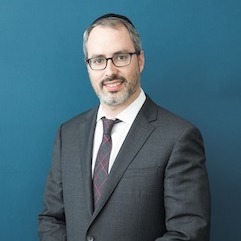The concept of Ruach Ra’ah, which we discussed in Part I, seems to be the primary reason for the great rush to wash ones hands in the morning. The Gemara uses strong language, saying that the hand that touches the eye, nose, ears, mouth or any other bodily orifice deserves to be cut off. The Gemara explains that by touching an opening it imparts Ruach Ra’ah into the opening. This also applies to touching food. The Gemara concludes that the only way to remove the spirit is to wash your hands three times.
The Bach, quoting the Zohar, says that one who walks four Amos without washing their hands is eligible for the death penalty!
There is a fascinating tradition from the Vilna Gaon: There was a famous convert known as the Ger Tzedek, Avraham ben Avraham. He was a young nobleman from a Polish –Catholic family who converted to Judaism, and was found out and burned at the stake. The Vilna Gaon had apparently developed a relationship with the young count, even offering to save him through supernatural means – his offer was refused. After his death the Vilna Gaon declared that the Ruach Ra’ah of the morning had been lessened, and one no longer had to be as careful with Ruach Ra’ah. This tradition was quoted by Rav Shlomo Zalman Auerbach, and is said to be the reason why in Slabodka the custom was to be lenient with walking four Amos before washing hands.
Although this tradition is not relied upon for Halacha, it may be the reason why the Yeshiva world tends to be more lenient than the strictest letter of the law when it comes to the laws of Netilas Yadayim.
Now some Halachos:
As discussed, before washing your hands you should not touch any openings on the body. You should also not walk four Amos without washing, although there are opinions that one could count the entire room, or perhaps the entire house, as four Amos.
A nursing woman, who wakes up to nurse her child in the middle of the night, should be careful not to touch the baby’s mouth. When changing a diaper in the nighttime one should also be careful to not touch any orifices. There is a lenient opinion, cited by the Aishel Avraham (Butshatsh) that the Ruach Ra’ah only arrives when one wakes up for the day.
It is questionable as to whether the prohibition applies to eyelids; the Aishel Avraham writes that for any necessary purpose one may be lenient.
The Gemara writes that in order to remove the Ruach Ra’ah one must wash their hands three times. The Poskim explain that this should be done in an alternating manner as follows: lift the cup with your right hand, pass it to your left pour once onto your right and then switch hands and pour once onto your left. Repeat until both hands have been washed three times. (a leftie should do so as well). There is another opinion that one should wash his right hand three times and then his left hand three times. Although the minhag is like the first method, some are machmir to employ both methods.
Once you have washed your hands three times, there is a question as to whether the water remaining on your hands is impure or not, the difference being whether you should make the Berachah before drying your hands (as is preferable when washing for bread) or after the drying. Some Poskim say that one should therefore immediately dry their hands. The Vilna Gaon recommended washing a fourth time in order to wash off any remaning impure waters, and according to him one could say the blessing before drying their hands.
Although many are accustomed to say the Beracha later either way (Iy”H we will get to that later) there is another important difference, i.e. if you may wash your face before drying your hands. If the water on your hands still has the vestiges of Ruach Ra’ah, it would not be good to then touch your eyes, nose and mouth with it. If one follows the practice of the Gaon and washes a fourth time they will not have to dry their hands before washing their face.
To be continued…


Doesn’t the “chumrah” of washing a 4th time not jive with the idea that ruach raah is less today and that it has halachic significance that it is less?
YC,
Indeed, it would seem to be a contradiction within the practices of the GRA. The 4th time thing is recorded in Maaseh Rav and may have predated the Avraham ben Avraham incident. Alternatively – the GRA himself did not say the halachos are now abolished, rather that there is less ruach raah, but he may have not changed any halachic practices based on this.
TH
Thank you and that is the GR”A lishi’taso, nevermind the nature of Ruach Raah, Halacha remains same